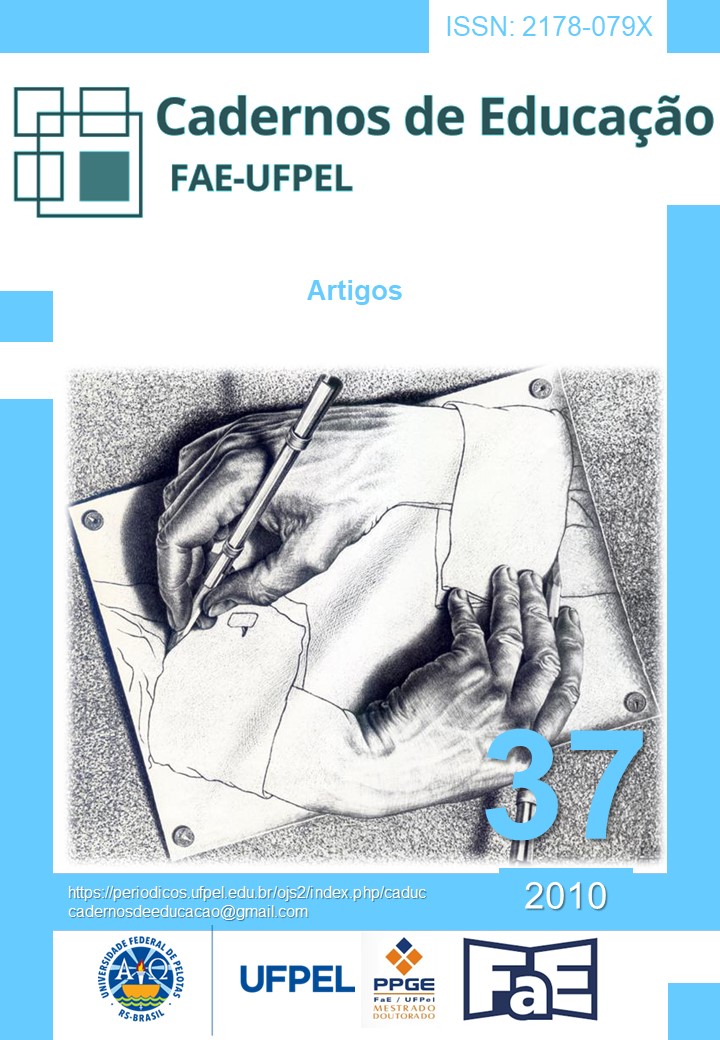Dimensões de gênero na experiência educativa em alternância no município de Cametá - Pará
Resumo
Este artigo analisa as relações de gênero presentes na Casa Familiar Rural de Cametá – Pará (CFRC), a partir da experiência educativa em alternância de alunos que, uma semana a cada mês, estão envolvidos em regime de internato nas dependências da escola e, nas outras semanas, desenvolvem atividades relacionadas à agricultura nos seus respectivos estabelecimentos familiares. A pesquisa se deu através de estudo de caso com privilégio para a fala das mulheres. A hipótese central é a de que o conteúdo das relações de gênero estruturadas na família se reproduz na CFRC, muito embora um dos seus pressupostos seja a equidade no processo educativo de formação dos jovens para atuar na agricultura. Os principais resultados confirmam a hipótese levantada, mostrando que a mesma divisão do trabalho exercitada na família se reproduz na escola com atividades denominadas “leves” para as mulheres e “pesadas” para os homens. Essa divisão confere uma formação diferenciada aos alunos da mesma escola segundo uma noção preexistente que reforça papéis tradicionais. Mesmo assim, as mulheres reconhecem que, nas suas trajetórias da casa da família à casa da escola, constroem significados do que é ser mulher e de como lidar melhor com as diferenças ali reforçadas.Palavras-chave: Gênero, Estabelecimento Familiar, Pedagogia da Alternância.
Gender dimensions of the educational experience in alternation in the city of Cametá – Pará.
AbstractThe article examines gender relations engendered in the Rural Family House of Cametá - Pará (CFRC), from an educative experience in alternation of students which ones, one week every month, are involved in boarding school regime on the school building and in the other weeks they develop activities related to agriculture in their respectively homes. The research occurs as a case study with women speech privileged. The central hypothesis is that one which says the gender relations contents based on families reproduces in the CFRC, however one of their assumptions was the equity in the educative process of the young formation to act in the agriculture. The major results confirm the hypothesis, showing that the same work division performed in the family reproduces in the school with activities called “light” for women and “heavy” for men. This division gives a different formation to the students in the same school according to a preexisting notion which strengthens the traditional roles. However, the women recognize that, in their pathways from the family home to school home, they build means of what is being a woman and how to deal better with the differences there reinforced.
Keywords: Gender, Family establishment. Alternation Pedagogy
Downloads
Não há dados estatísticos.
Publicado
2010-10-01
Como Citar
Silva, M. C. L. e, & Mota, D. M. da. (2010). Dimensões de gênero na experiência educativa em alternância no município de Cametá - Pará. Cadernos De Educação, (37). https://doi.org/10.15210/caduc.v0i37.1584
Edição
Seção
Artigos






